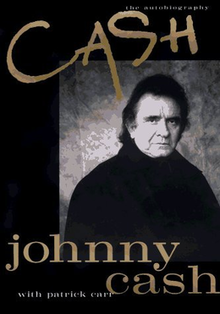
"A Boy Named Sue" is a song written by humorist and poet Shel Silverstein and made popular by Johnny Cash. Cash recorded the song live in concert on February 24, 1969 at California's San Quentin State Prison for his At San Quentin album. Cash also performed the song in December 1969 at Madison Square Garden. The live San Quentin version of the song became Cash's biggest hit on the Billboard Hot 100 chart and his only top ten single there, spending three weeks at No. 2 in 1969, held out of the top spot by "Honky Tonk Women" by The Rolling Stones. The track also topped the Billboard Hot Country Songs and Easy Listening charts that same year and was certified Gold on August 14, 1969, by the RIAA.
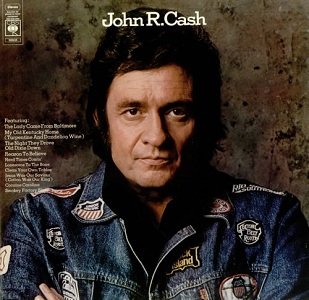
John R. Cash is the 51st overall album by country singer Johnny Cash, released in 1975 on Columbia Records. It consists mostly of covers of other musicians' songs. The first track on the album, a song titled "My Old Kentucky Home", is not the state song of Kentucky, but a composition by Randy Newman which had been previously recorded by the Osborne Brothers in 1970 and Three Dog Night in 1972; Cash's version, like that of the Osborne Brothers five years previous, was released as the second single from the album, though the previously issued single "The Lady Came from Baltimore" had achieved greater success on the charts, reaching #14. The Cash original "Lonesome to the Bone" had previously appeared on Ragged Old Flag (1974) and would make one more appearance on Silver (1979).

Johnny Cash at San Quentin is the 31st overall album by Johnny Cash, recorded live at San Quentin State Prison on February 24, 1969, and released on June 16 of that same year. The concert was filmed by Granada Television, produced and directed by Michael Darlow. The album was the second in Cash's conceptual series of live prison albums that also included At Folsom Prison (1968), På Österåker (1973), and A Concert Behind Prison Walls (1976).
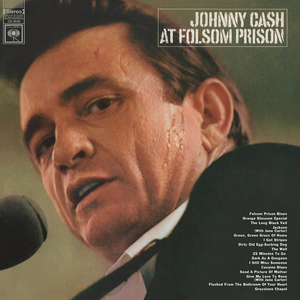
Johnny Cash at Folsom Prison is a live album by American singer-songwriter Johnny Cash, released on Columbia Records in May 1968. After his 1955 song "Folsom Prison Blues", Cash had been interested in recording a performance at a prison. His idea was put on hold until 1967, when personnel changes at Columbia Records put Bob Johnston in charge of producing Cash's material. Cash had recently controlled his drug abuse problems, and was looking to turn his career around after several years of limited commercial success. Backed by June Carter, Carl Perkins and the Tennessee Three, Cash performed two shows at Folsom State Prison in California on January 13, 1968. The album consists of fifteen tracks from the first show and two tracks from the second.

Walk the Line is a 2005 American biographical musical romantic drama film directed by James Mangold. The screenplay, written by Mangold and Gill Dennis, is based on two autobiographies authored by singer-songwriter Johnny Cash, 1975's Man in Black: His Own Story in His Own Words and 1997's Cash: The Autobiography. The film follows Cash's early life, his romance with June Carter, and his ascent in the country music scene. It stars Joaquin Phoenix as Cash, Reese Witherspoon as Carter, Ginnifer Goodwin as Cash's first wife Vivian Liberto, and Robert Patrick as Cash's father.
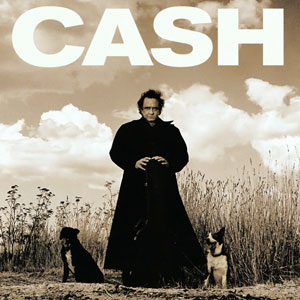
American Recordings is the 81st album by the country singer Johnny Cash. It was released on April 26, 1994 by American Recordings, after it had changed its name from Def American.

"Million Dollar Quartet" is a recording of an impromptu jam session involving Elvis Presley, Jerry Lee Lewis, Carl Perkins, and Johnny Cash made on December 4, 1956, at the Sun Record Studios in Memphis, Tennessee. An article about the session was published in the Memphis Press-Scimitar under the title "Million Dollar Quartet". The recording was first released in Europe in 1981 as The Million Dollar Quartet with 17 tracks. A few years later more tracks were discovered and released as The Complete Million Dollar Session. In 1990, the recordings were released in the United States as Elvis Presley - The Million Dollar Quartet. This session is considered a seminal moment in rock and roll.
Luther Monroe Perkins was an American country music guitarist and a member of the Tennessee Three, the backup band for singer Johnny Cash. Perkins was an iconic figure in what would become known as rockabilly music. His creatively simple, sparsely embellished, rhythmic use of Fender Esquire, Jazzmaster and Jaguar guitars is credited for creating Cash's signature "boom-chicka-boom" style.
Donnchad II (1154–1204), anglicized as Duncan II or Dunecan II, succeeded his father Duncan I as Earl of Fife in childhood. As a child of the previous mormaer, he was entitled to succeed his father through primogeniture, but not to lead his kin-group, Clann MacDuib. That probably fell to his cousin, Aed mac Gille Míchéil. Like previous mormaers of Fife, Duncan II was appointed Justiciar of Scotia. Donnchad's minority also meant that Ferchar, Mormaer of Strathearn, took supreme place as head of the Gaelic nobility and guide for the boy-king Malcolm IV.
"Home of the Blues" is a song co-written and recorded by American country music artist Johnny Cash. The song was recorded on July 1, 1957 in Memphis, Tennessee, and was released as a single in August of the same year. It was also included as the eleventh track of his second album Sings the Songs That Made Him Famous.

"San Francisco " is a psychedelic pop song, written by John Phillips, and sung by Scott McKenzie. The song was produced and released in May 1967 by Phillips and Lou Adler, who used it to promote their Monterey International Pop Music Festival held in June of that year.
Patrick Carr may refer to:

The Johnny Cash Show is an American television music variety show hosted by Johnny Cash. The Screen Gems 58-episode series ran from June 7, 1969 to March 31, 1971 on ABC; it was taped at the Ryman Auditorium in Nashville, Tennessee. The show reached No. 17 in the Nielsen ratings in 1970.

John R. Cash was an American singer, songwriter, musician, and actor. Much of Cash's music contained themes of sorrow, moral tribulation, and redemption, especially in the later stages of his career. He was known for his deep, calm bass-baritone voice, the distinctive sound of his Tennessee Three backing band characterized by train-like chugging guitar rhythms, a rebelliousness coupled with an increasingly somber and humble demeanor, free prison concerts, and a trademark all-black stage wardrobe which earned him the nickname "The Man in Black".

Back Home is the original LP reissue of Merle Travis's first album, Folk Songs of the Hills (1947), with four previously unreleased tracks and a new cover. This album marked a new turn in Travis's career, bringing his Kentucky-style fingerpicking and down-home vocal stylings to the attention of a broad public of country and folk music enthusiasts at the onset of the American folk music revival. Together with another Capitol release the following year, The Merle Travis Guitar, it introduced the style of guitar playing that came to be known, in simplified form, as Travis picking. The album includes a selection of traditional country songs such as "John Henry", "Muskrat", "Lost John ", "Barbara Allen", and Travis' signature gospel song, "I Am a Pilgrim". Also included are the original compositions "Dark as a Dungeon" and "Sixteen Tons". All songs are introduced by a spoken narrative.

The Mojo Men was an American rock band based in San Francisco. Formed in 1965, the group underwent several name and personnel changes until their 1969 breakup. Their highest-charting Billboard Hot 100 single was a cover of Buffalo Springfield's "Sit Down, I Think I Love You", which peaked at number 36 in 1967.
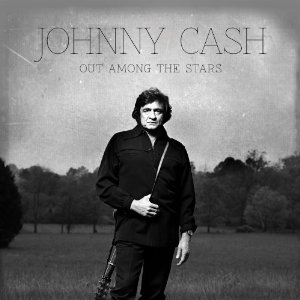
Out Among the Stars is a posthumously released studio album by Johnny Cash. It was released on March 25, 2014, by Legacy Recordings. The recordings come from lost 1980s sessions with famed countrypolitan producer Billy Sherrill which were shelved by Cash's record company, Columbia Records, and discovered by Cash's son John Carter Cash in 2012.
Give My Love to Rose is a country song by Johnny Cash, which he recorded together with the Tennessee Two at Sun Records under the production of Sam Phillips in 1957. The song was released in August of the same year as the B-side of the single "Home of the Blues", which reached No. 3 in the Country Jockey charts and No. 5 in the Country & Western Chart. "Give My Love To Rose" reached No. 13 in the Country & Western Chart.
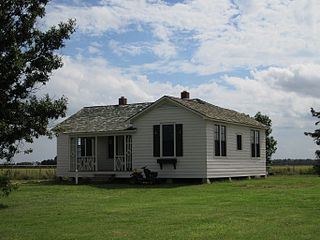
Farm No. 266—Johnny Cash Boyhood Home was listed on the National Register of Historic Places in 2018.
Cindy Cash is an American singer, author, and antiques dealer.
